Understanding Ourselves in the Context of AI
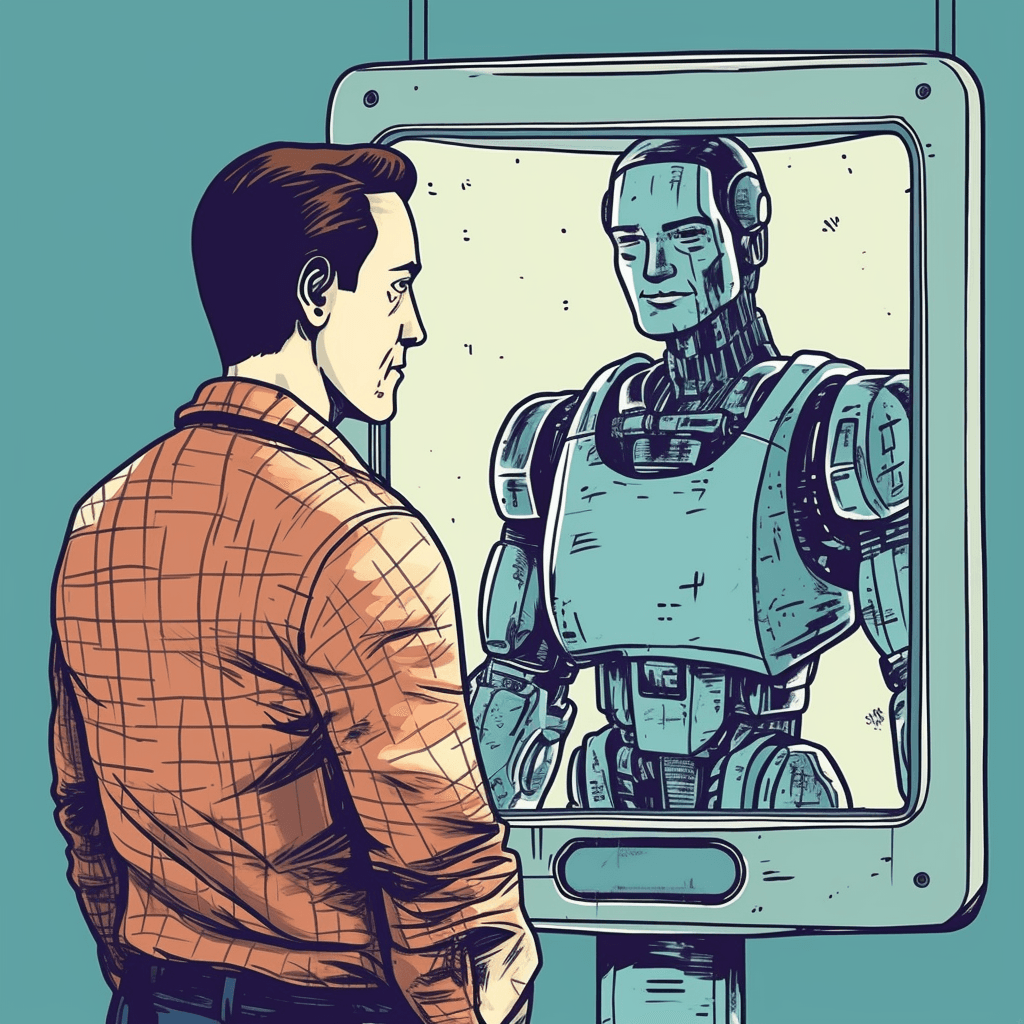
How Will We Leverage Great Wisdom to Create Great AI?
As a dedicated AI enthusiast, I often find myself reflecting on the profound nature of this technology. I asked ChatGPT4 to help me think through this with help from some of the great thinkers in history, finally landing on quotes from Camus, Acton, and Einstein. Here I attempt to see the relevance of our best wisdom in the context of AI's evolution. It's past 10pm, my 2-year-old is asleep, and as I delve into the AI world, a few of quotes provided by an AI resonate with my personal and professional journey with AI.
Why Do We Seek to Create AI?
Albert Camus once said, "Man is the only creature who refuses to be what he is." This strikes a chord with me. It's a reminder of humanity's relentless pursuit of growth and transcendence, a trait clearly visible in our work with AI. We're not just creating AI systems like GPT-4; we're redefining what it means to be human in an age where our creations start to mirror our intellect.
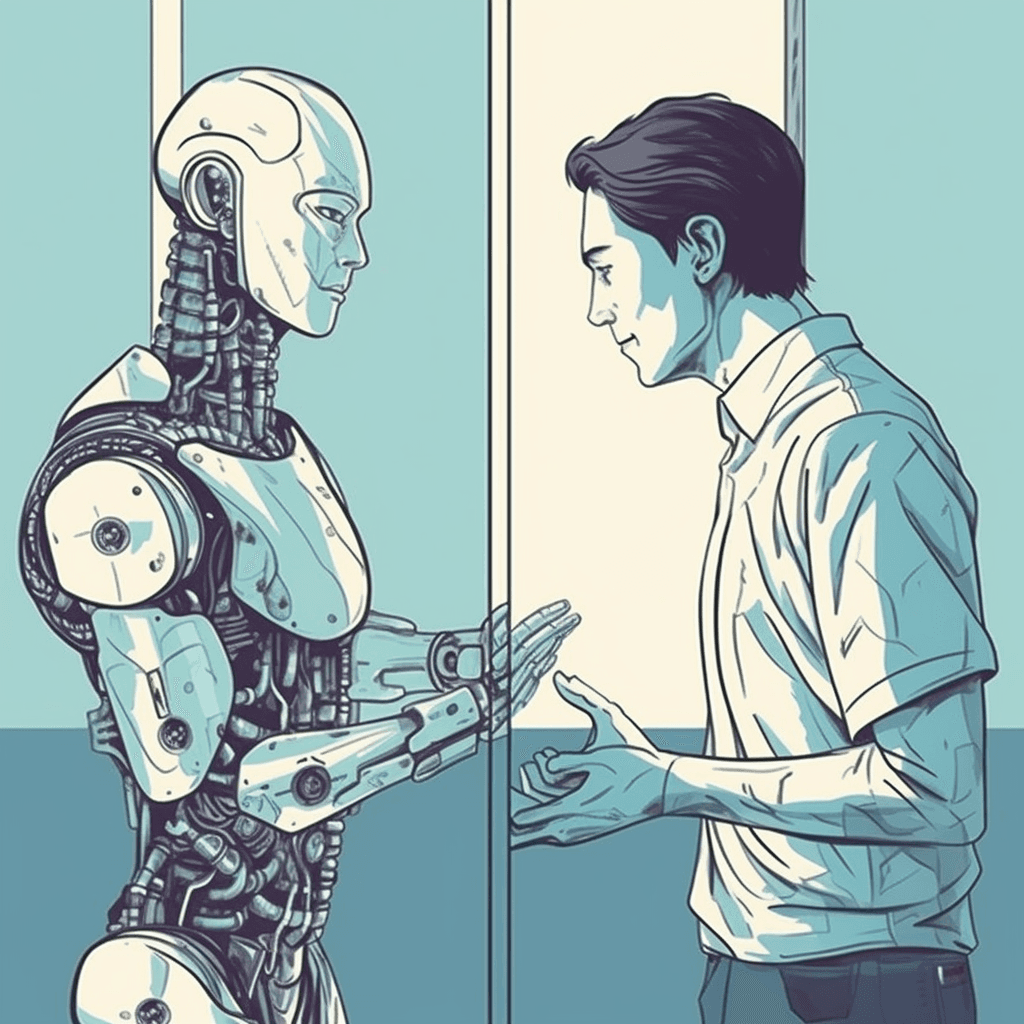
Camus’s observation speaks to a fundamental aspect of the human condition - our innate drive to push boundaries and redefine our capabilities. This translates into not just developing technology for the sake of efficiency or advancement but also exploring how AI can augment and extend the essence of human experience and intelligence.
We are not only automating tasks or analyzing data but are also exploring the very nature of intelligence and consciousness. AI challenges our understanding of what it means to be human, as it begins to mirror aspects of our intellect and creativity.
Our advancements in AI should not just be about surpassing human capabilities, but also about understanding and preserving what makes us uniquely human. It’s about ensuring that as we harness the power of AI to transcend our natural limitations, we do so in a way that enhances, rather than diminishes, our humanity.
Everyone Should Have Access to AI
Lord Acton's observation, "Power tends to corrupt, and absolute power corrupts absolutely," is a reminder of the ethical responsibility that comes with AI. We must ensure that the power of AI is channeled positively, avoiding the pitfalls of misuse and ethical lapses.
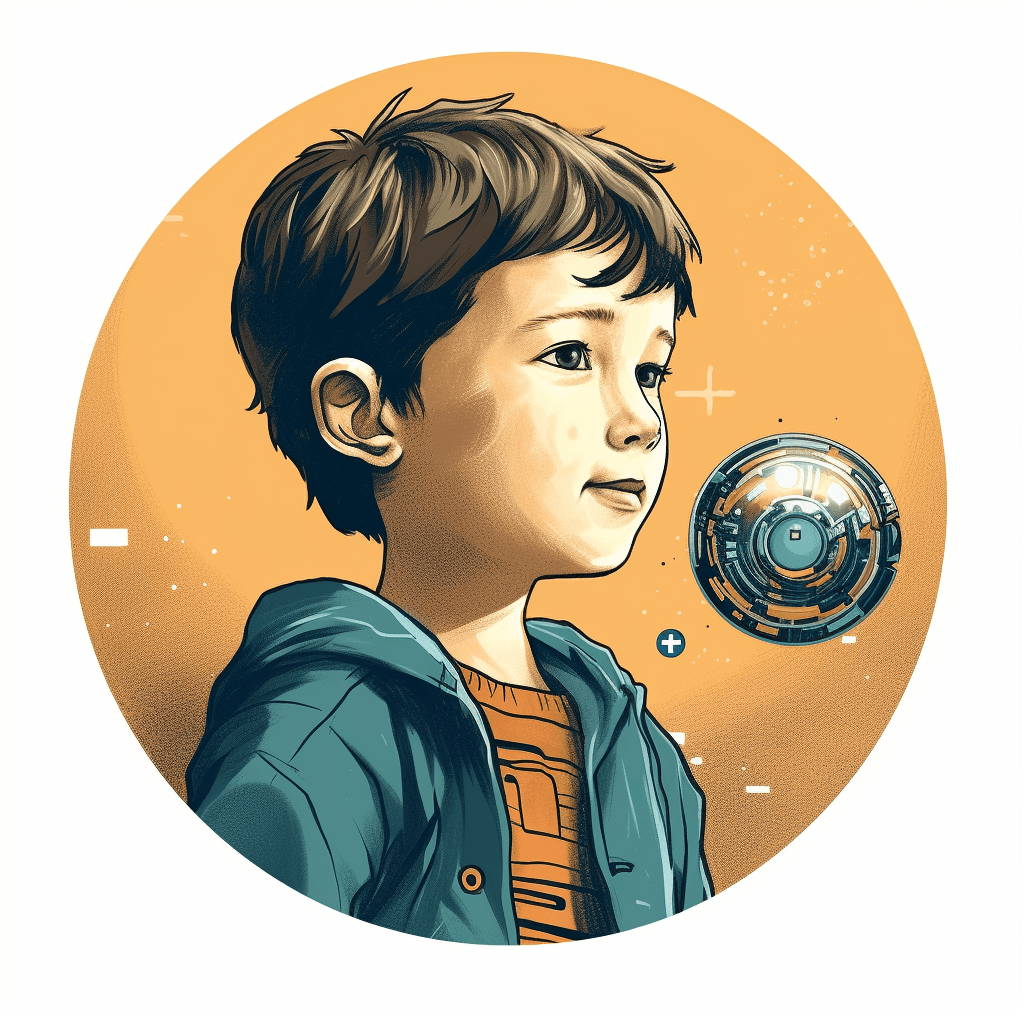
The 'power' is not just in its computational capabilities, but in its potential to influence human lives and society. The development and deployment of AI involves decisions that can fundamental aspects of our privacy and freedom. As I navigate these complex domains, Acton's words ring true, cautioning against the seduction of unchecked power.
The potential for corruption in AI is not in a traditional sense but in the form of biases, ethical oversights, and the potential for invasion of privacy. The power of AI, if misdirected, can lead to discriminatory outcomes, manipulation, or invasions of privacy. Acton’s wisdom pushes me to ask hard questions about the applications I’m developing: Are they fair? Are they respecting user privacy? Are they augmenting human capability without causing dependency?
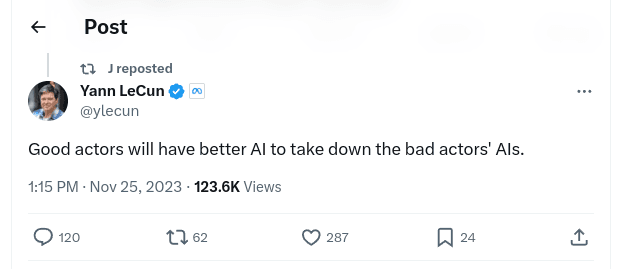
We have a collective responsibility. As we stand on the precipice of significant breakthroughs, the collective ethical compass of AI researchers, developers, and policymakers must align to ensure that the power of AI is not corrupted by commercial interests, political agendas, or harmful applications.
This has led to a commitment to transparency, accountability, and public engagement in AI development. It means advocating for policies and practices that ensure AI systems are auditable, explainable, and respectful of human rights. It also means engaging in active dialogue with diverse stakeholders, including those who could be impacted by AI, to understand their concerns and perspectives.
While AI holds tremendous potential for good, this power must be harnessed with a vigilant eye on ethical implications, ensuring that the development of AI remains a force for positive transformation rather than a conduit for unintended harm.
Imagination Augmented AI
Albert Einstein's belief that "Imagination is more important than knowledge" emphasizes the creative potential of AI, pushing the boundaries of what we know and venturing into realms of what we can imagine.
This statement underlines the essence of creativity and innovation in AI. Einstein's perspective is a powerful reminder that the true potential of AI lies not just in its ability to store and process vast amounts of information, but in its capacity to extend the boundaries of human creativity and exploration.
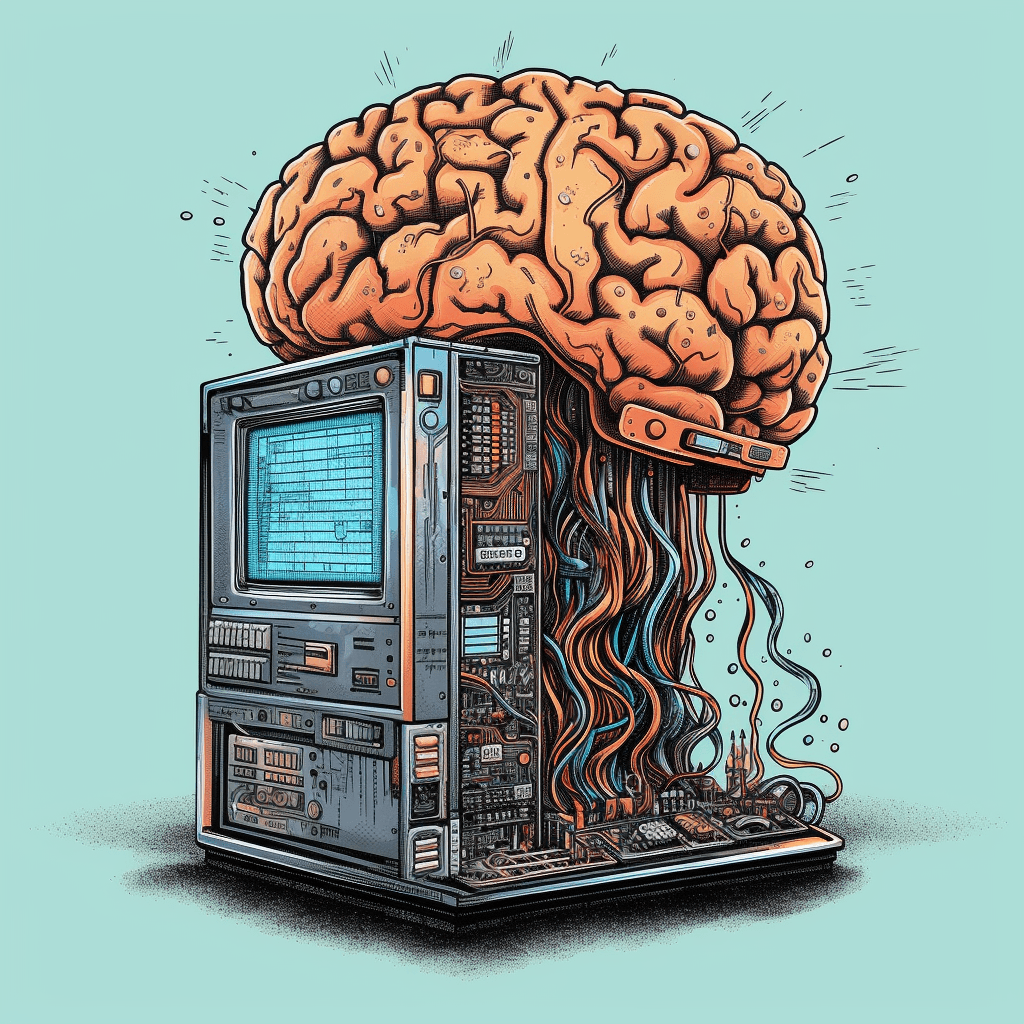
In the field of AI, 'knowledge' is often represented by data, algorithms, and computational power. However, the 'imagination' aspect comes into play when we think about how to use this knowledge. It’s about envisioning new applications, solving problems in ways we never thought possible, and even asking questions we didn't know we had. This imaginative aspect is what transforms AI from a mere tool into a partner in innovation.
Instead of solely focusing on improving existing algorithms or making incremental improvements, I am driven to think about how AI can be used to create something novel - whether it's in art, science, healthcare, or any other field. For instance, AI’s potential in artistic creation is not just about replicating human art but about creating new forms of art that might not be conceivable by the human mind alone.
Einstein's quote also speaks to the necessity of a forward-thinking mindset in AI development. It's not just about what AI can do now, but what it could do in the future. It's about dreaming of a future where AI can help us solve some of our most complex and pressing problems, from climate change to curing diseases.
We must foster a culture of creativity and open-mindedness within the AI community. It’s about encouraging unconventional ideas, supporting blue-sky thinking, and being open to taking risks. This approach can lead to breakthroughs that a purely knowledge-driven mindset might miss.
I'm constantly reminded that the true power of AI lies in its potential to expand the horizons of human thought and creativity. It encourages me to imagine and create AI systems that inspire and innovate.
Samuel Johnson's wisdom, "The true measure of a man is how he treats someone who can do him absolutely no good, " is a poignant reminder of the altruistic potential of AI. We should focus on creating technology that serves all of humanity.
This wisdom speaks volumes about the essence of true altruism and integrity. It's a principle that transcends personal gain and looks at the broader impact of technology on society. In the world of AI, this translates into creating systems that are not just advanced and efficient but are also compassionate and equitable.

In practical terms, I want to develop systems that not only help those of us with the means to directly benefit from this technology, but also to serve the underserved, addresses the needs of the marginalized, and offers solutions to those who might not be able to offer anything in return. It's about shifting the focus to AI that addresses challenges throughout society. It's about using AI to level the playing field, offering high-quality resources and opportunities to those who might otherwise be left behind, by making good education, care, and insights to everyone.
This approach also involves a commitment to ethical AI development practices. It means ensuring that AI systems are free from biases that could harm certain groups, and that they respect privacy and human rights. It's about being vigilant that the AI doesn't inadvertently become a tool for exploitation or exacerbate existing inequalities.
The ultimate goal of AI should be to enhance human dignity and societal well-being. The development and deployment of AI should be guided by compassion and a deep sense of responsibility towards all segments of society, especially those who stand to gain the least from technological advancements.
Conclusion
While I strive to advance in this field, I also seek to maintain a balance - ensuring that my technological progress enhances our humanity, respects ethical boundaries, and contributes positively to the world. As I continue my journey in AI, these reflections shall be a beacon, illuminating the path towards a future where AI is not only a testament to human intelligence but also to our compassion, creativity, and ethical integrity.